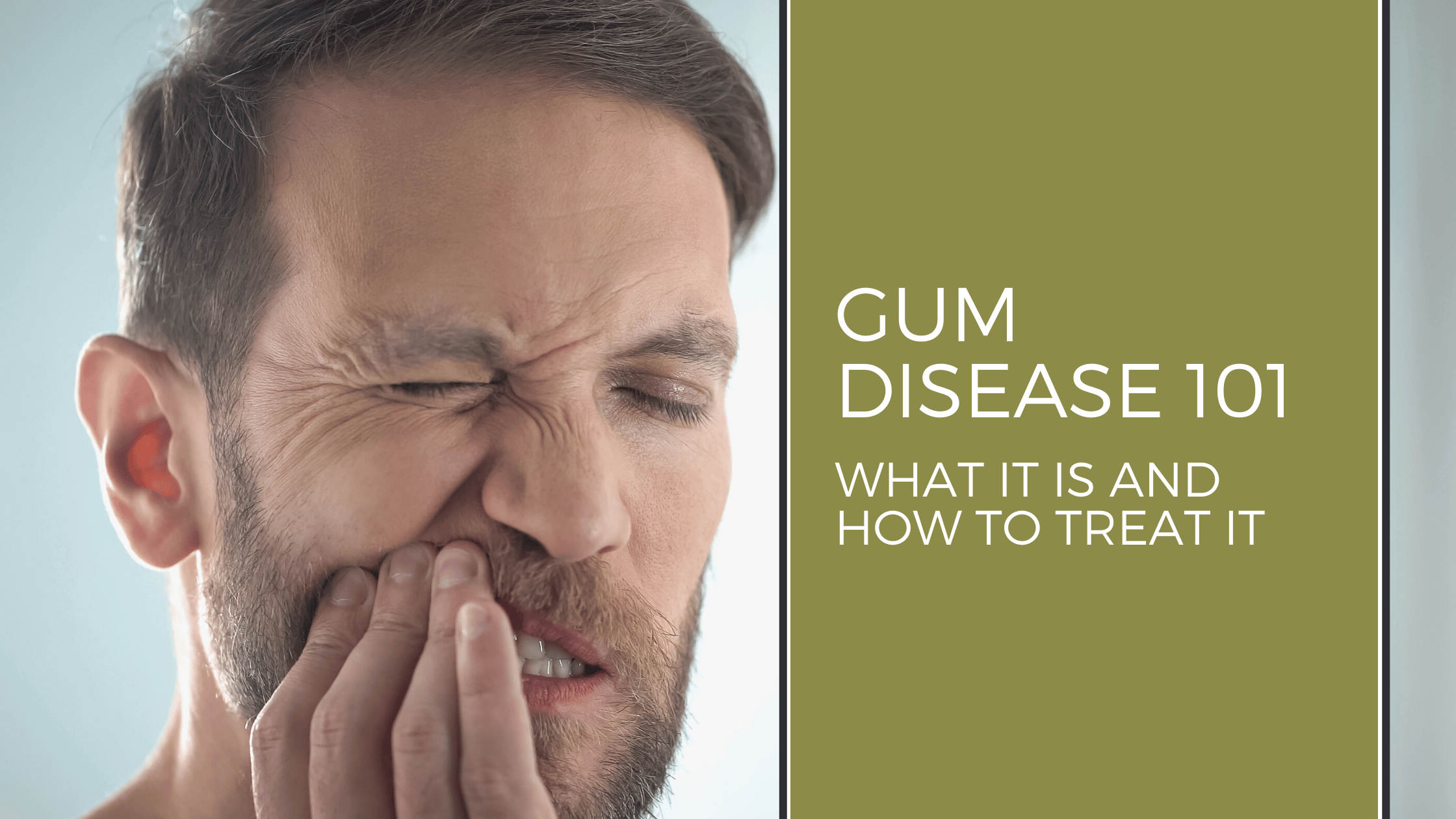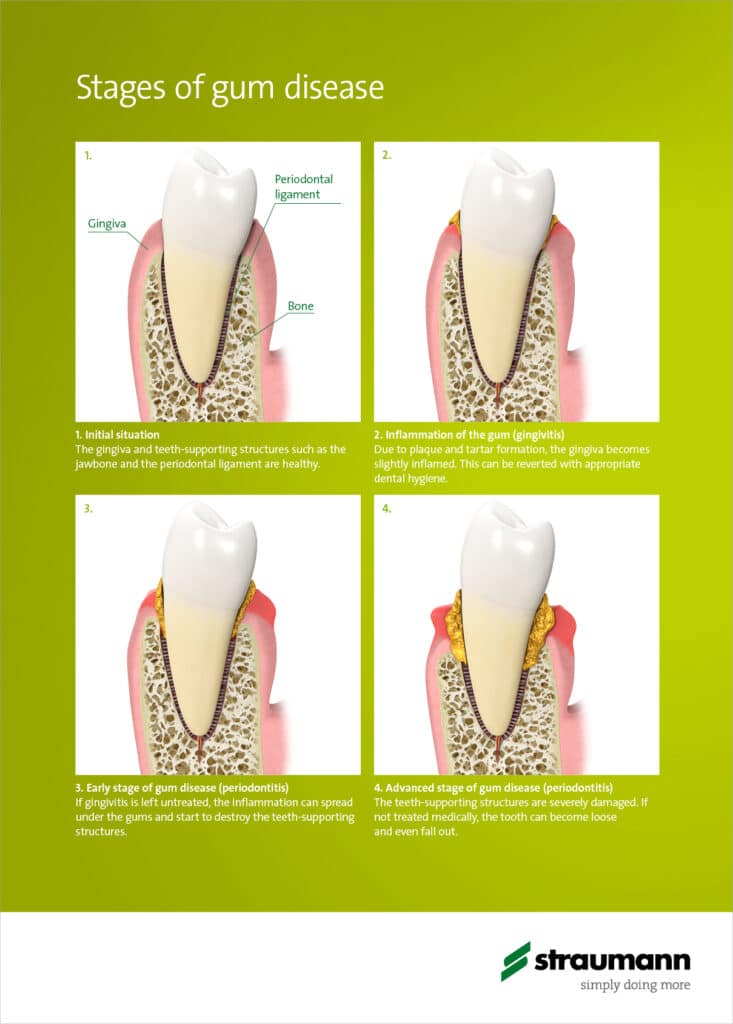
What is gum disease?
Do your gums bleed when you brush your teeth? Do you regularly have bad breath? You might have gum disease – a very common problem with adults in the United Kingdom.
Most adults in the UK have gum disease to some degree, and most people experience it at least once. It’s much less common in children. It is a condition in which the gums become swollen, sore, or infected. You may also know it as gingivitis.
What causes it?
The build-up of plaque on the teeth, typically caused by not brushing your teeth regularly and effectively, causes gum disease. Plaque contains bacteria that infects the gums and causes redness, bleeding and pain.
What are the symptoms?
Initially, you can experience red and swollen gums, as well as bleeding after flossing or brushing your teeth. In a most acute state, it can cause halitosis (bad breath), an unpleasant taste in your mouth and even loose teeth and pus under the gums.

Periodontitis
If you don’t get your gingivitis under control at the early stages, it can develop into periodontitis – gum disease in its more advanced form. Around 10-15% of adults are at risk of developing periodontitis, and if left untreated the disease can result in tooth loss, as well as leading to an increased risk of other health problems such as strokes and heart attacks.
Here at Woodborough House Dental Practice, we pride ourselves on our efficiency and gentle expertise when it comes to dealing with oral hygiene and periodontitis. One of our most effective treatments for periodontitis is root planing. Dr. Kuljeet Mehta is registered as a Specialist in Periodontics by the General Dental Council and throughout his career he has helped thousands of patients achieve beautiful, healthy smiles.
What is root planing?
Root planing involves a deep scaling treatment that cleans parts of the teeth that are impossible to reach with a toothbrush, below the gum line. It cleans out the periodontal pockets and removes tartar and plaque from the roots of the teeth. After root planing, the pockets will start to shrink, so that the gum sits closer to the tooth, helping to prevent further bone loss.
In order to be fully effective, root planing will probably need to be repeated on a regular basis and it is important that after the procedure, you are especially careful about cleaning your teeth above the gum line.
How can I prevent gum disease?
Maintaining a good level of oral hygiene is key. Make sure you brush your teeth at least twice a day and floss daily.
One of the most important things you can do for the health of your gums is visiting your dentist and hygienist for regular check-ups, where they can keep up with the condition of your gums and remove hardened plaque with cleaning. Seeing your hygienist is also fundamental to know how to clean your teeth effectively and help prevent plaque build-up.
Please be aware that smokers need to be extra careful, as they are more prone to gum disease.
You’ve Waited Long Enough
Get in touch with us to learn about award-winning, specialist-led cosmetic, restorative and general services at Reading’s home of slow dentistry.
Get in touch
